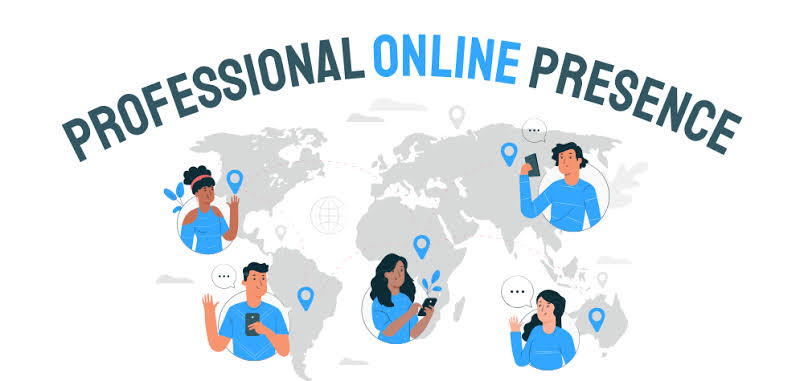In today’s digital-driven world, building a strong online professional presence is no longer optional; it is essential for career growth and business success. Whether you are an entrepreneur, a job seeker, or an established professional, the internet serves as your global portfolio, showcasing your expertise, skills, and achievements. A powerful online presence enhances credibility, attracts opportunities, and allows you to connect with industry leaders and potential clients.
By 2025, the professional landscape has become even more competitive and digitally focused. Employers and business partners often evaluate a person’s online footprint before making decisions. This means that a well-crafted online presence can set you apart from others in your field. It requires consistent effort, strategic branding, and the effective use of digital platforms to build and maintain a positive professional image.
Defining Your Personal Brand
The foundation of a strong online professional presence lies in creating a clear personal brand. Your personal brand reflects your values, strengths, and professional identity. To develop it, start by defining your unique skills, areas of expertise, and career goals.
Consistency is key when building a personal brand. The way you present yourself across various online platforms should align with your professional objectives. From your tone of voice to the visuals you use, every detail should reinforce the image you want to project.
Optimizing Your LinkedIn Profile
LinkedIn remains one of the most important platforms for professionals. A well-optimized LinkedIn profile acts as a digital resume and networking tool. Ensure that your profile picture is professional, your headline reflects your expertise, and your summary showcases your achievements and career goals.
Regularly updating your experience, skills, and endorsements strengthens your profile’s credibility. Sharing industry insights, publishing articles, and engaging with relevant content also demonstrates thought leadership and keeps you visible within your network.
Leveraging Other Social Media Platforms
Beyond LinkedIn, platforms such as Twitter, Instagram, and even TikTok are being used by professionals to share insights, trends, and personal success stories. Depending on your industry, these platforms can help you reach a wider audience and establish your authority.
However, professionalism must always remain a priority. Review your social media profiles regularly to ensure they align with your brand. Avoid controversial or unprofessional content that could harm your reputation.
Creating a Personal Website or Portfolio
A personal website or digital portfolio provides a centralized platform to showcase your work, achievements, and professional story. It offers greater control over your brand compared to social media platforms.
Your website can include your biography, work samples, testimonials, blog posts, and contact information. Having a professional domain name also makes you appear more credible to employers, clients, or collaborators.
Sharing Valuable Content
Content creation is one of the most effective ways to build an online presence. Sharing valuable content, whether through blogs, videos, or social posts, helps position you as an expert in your field.
Focus on content that educates, informs, or inspires your audience. Regularly engaging with trending topics in your industry increases visibility and strengthens your reputation as a knowledgeable professional.
Networking and Online Engagement
Building a strong online presence is not just about showcasing yourself—it is also about engaging with others. Networking on digital platforms helps build meaningful relationships with peers, mentors, and potential clients.
Participating in online discussions, joining professional groups, and collaborating on projects allow you to expand your reach and influence. The more you engage, the more visible and credible you become within your field.
Managing Your Online Reputation
Your online reputation is a crucial part of your professional presence. Regularly monitor your digital footprint by searching your name on search engines and ensuring that all visible information aligns with your professional goals.
If negative content appears, take proactive steps to address it, such as creating positive content or requesting outdated information to be removed. Online reputation management tools can also help track mentions and maintain a strong digital image.
Continuous Learning and Growth
Staying relevant online requires continuous growth. Take advantage of online courses, certifications, and industry webinars to keep your skills updated. Sharing your learning journey and accomplishments online adds credibility and shows your commitment to personal development.
Adapting to new trends in digital branding and technology ensures that your online presence remains strong and competitive in a rapidly evolving world.
Conclusion
Building a strong online professional presence is an ongoing process that combines personal branding, strategic networking, and the creation of valuable content. In 2025, as digital platforms continue to dominate professional interactions, cultivating a credible and impactful presence is more important than ever.
By defining your brand, optimizing key platforms like LinkedIn, creating a personal website, and actively engaging with your audience, you can unlock new career opportunities and establish yourself as an authority in your field. With consistency and authenticity, your online professional presence will become a powerful tool for success.



